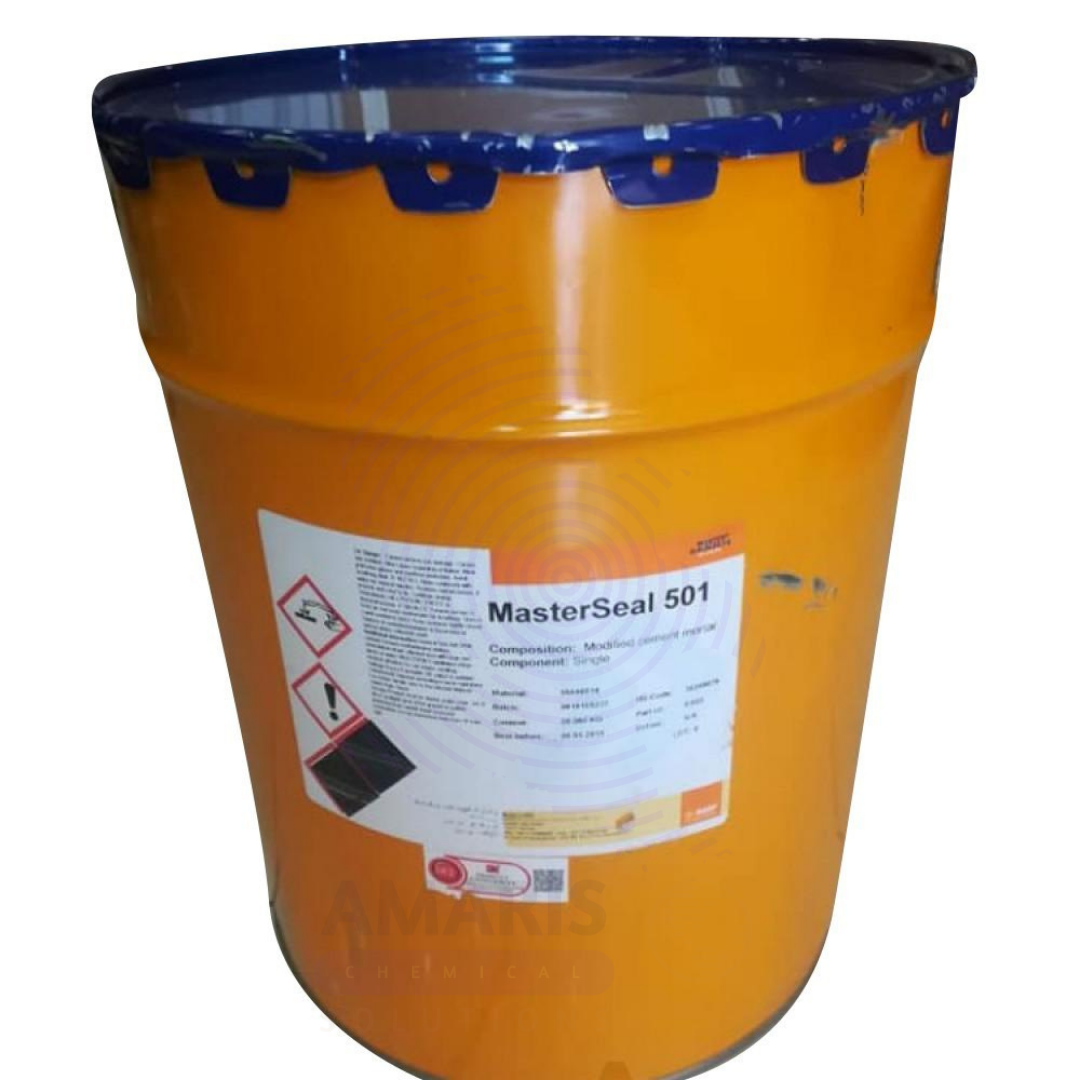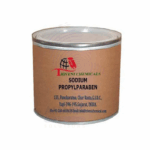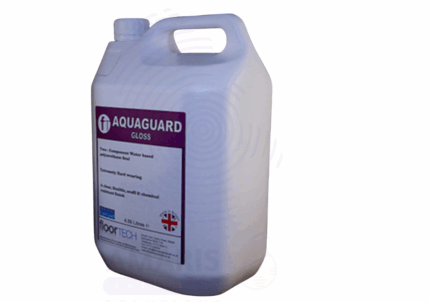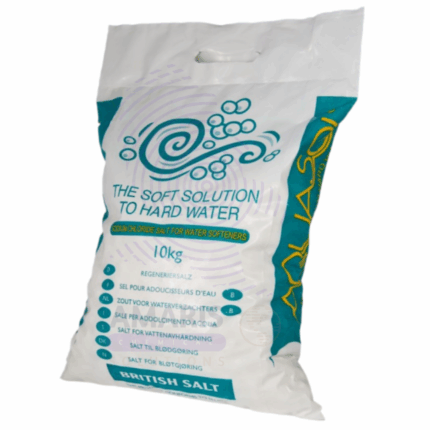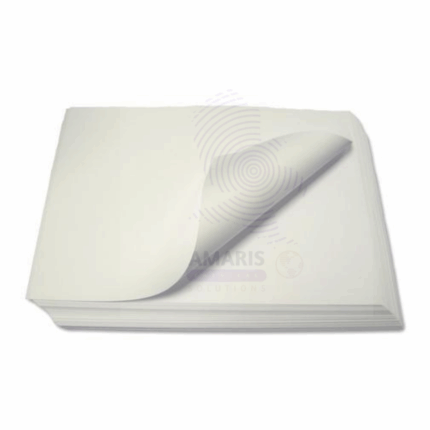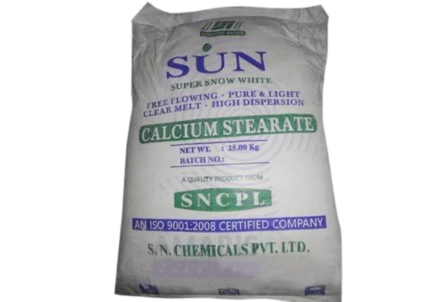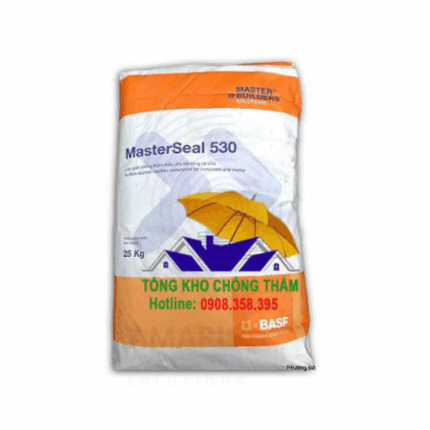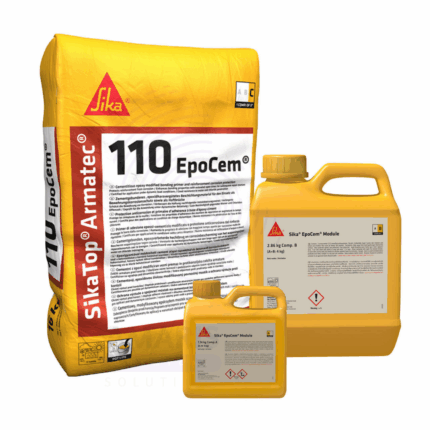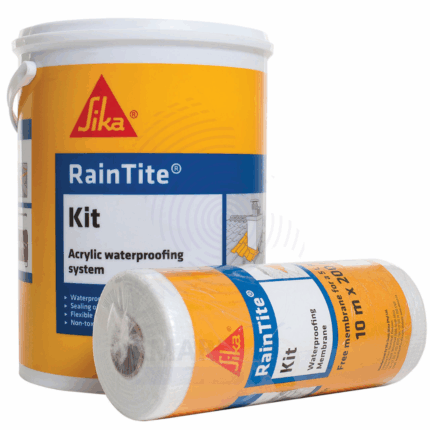Master Seal 501
$ 2.25 Original price was: $ 2.25.$ 2.14Current price is: $ 2.14.
Whatsapp Order
Master Seal 501 is a high-performance, polymer-modified cementitious waterproofing compound designed for both interior and exterior applications. It provides a durable, flexible, and crack-resistant waterproof barrier on concrete, masonry, and plaster surfaces. The product is easy to apply by brush, roller, or spray and adheres strongly to substrates, preventing water ingress and protecting structures from moisture damage. Master Seal 501 is ideal for basements, water tanks, terraces, balconies, and retaining walls.
Description
Table of Contents
Toggle
Master Seal 501
Primary Uses
- Waterproofing
- Provides effective waterproofing for concrete and masonry surfaces, preventing water penetration.
- Suitable for basements, water tanks, balconies, terraces, and roofs.
- Crack Bridging
- Flexible formulation allows for bridging small cracks and accommodating substrate movements without failure.
- Protection of Structural Elements
- Protects concrete and masonry from moisture-related deterioration, corrosion of reinforcement, and freeze-thaw damage.
Secondary Uses
- Concrete Repair
- Used as a bonding and sealing layer in concrete repair works to enhance durability.
- Plaster and Render Coating
- Can be applied on plastered surfaces to improve water resistance and extend service life.
KEY PRODUCT FEATURES
1. Basic Identification Attributes
- Chemical Name (IUPAC): Polymer-modified cementitious compound
- Common/Trade Name: Master Seal 501
- CAS Number: Not applicable (mixture)
- HS Code: 3824.90.90 (Chemical preparations not elsewhere specified)
- Synonyms: Waterproofing compound; polymer cement waterproofing; cementitious sealant
2. Physical & Chemical Properties
- Physical State: Powder (to be mixed with water)
- Color & Odor: Grey; characteristic cement odor
- pH (mixed slurry): Approximately 11 – 12
- Solubility: Insoluble in water once cured
- Density: Approx. 1.3 – 1.5 g/cm³ (powder form)
3. Safety & Hazard Attributes
- GHS Classification: Causes serious eye irritation (Category 2A); may cause skin irritation
- Toxicity: Low toxicity; avoid inhalation of dust and prolonged skin contact
- Exposure Limits: Follow general dust exposure limits and handling precautions
4. Storage & Handling Attributes
- Storage Conditions: Store in a cool, dry place in original sealed bags
- Container Type: Supplied in 25 kg bags
- Shelf Life: 6-12 months if stored properly
- Handling Precautions: Use dust mask, gloves, and eye protection during mixing and application
5. Regulatory & Compliance Attributes
- Complies with relevant waterproofing and construction chemical standards
- Meets environmental and safety regulations applicable to construction products
6. Environmental & Health Impact
- Biodegradability: Not biodegradable but inert once cured
- Ecotoxicity: Low environmental impact when used as intended
- Bioaccumulation: Not applicable
- Carcinogenicity/Mutagenicity: Not classified as hazardous
SAFETY HANDLING PRECAUTIONS
Safety Handling Precautions
- PPE Required: Gloves, dust mask, and safety goggles recommended
- Handling Guidelines: Avoid inhalation of dust; handle in well-ventilated areas
- Storage Measures: Keep sealed and dry to prevent moisture ingress
First Aid Measures
- Inhalation: Move to fresh air; seek medical attention if irritation occurs
- Skin Contact: Wash thoroughly with soap and water; seek medical advice if irritation develops
- Eye Contact: Rinse immediately with plenty of water for 15 minutes; seek medical attention
- Ingestion: Do not induce vomiting; rinse mouth and seek medical help
Firefighting Measures
- Fire Hazards: Non-flammable
- Extinguishing Media: Use water spray, foam, or dry chemical extinguishers if required for surrounding fire
- Special Precautions: Use standard protective equipment
- Hazardous Combustion Products: None expected under normal fire conditions
Related products
Aquaguard
Aquaguard is a brand name commonly associated with water purification products and filtration systems designed to provide safe, clean drinking water. These systems typically use technologies such as UV purification, RO (reverse osmosis), UF (ultrafiltration), and activated carbon filters to remove contaminants including bacteria, viruses, dissolved salts, heavy metals, and suspended particles. Aquaguard products are widely used in residential, commercial, and industrial settings to improve water quality, taste, and safety. The brand encompasses water purifiers, filters, and treatment units tailored to different water sources and purity requirements.
Aquasol
Aquasol is a water-soluble, high-purity soluble powder typically formulated for use as a mineral supplement or a delivery system in various industries. It often contains vitamins, minerals, or other active ingredients in a readily bioavailable aqueous form. Aquasol products are known for their excellent solubility in water, rapid absorption, and versatility in applications ranging from pharmaceuticals to food fortification and animal nutrition. The exact composition can vary depending on the intended use, but the common trait is its ability to dissolve quickly and evenly in aqueous media.
Bitumen Primer Extra Pure
Bitumen Primer Extra Pure is a high-purity, low-viscosity liquid used in laboratory and industrial research involving adhesion studies, waterproofing technologies, and material compatibility testing. It consists primarily of refined bitumen dissolved in a suitable solvent, allowing it to penetrate and seal porous substrates like concrete, masonry, or metal. In laboratory contexts, it is used to study the behavior of protective coatings, surface treatments, and corrosion resistance. The extra pure grade ensures minimal impurities and uniform consistency, supporting accurate and reproducible test results. Bitumen Primer should be stored in a tightly closed container in a well-ventilated area, away from heat sources, sparks, and open flames
Blotting Paper
Blotting Paper is a highly absorbent, unsized paper made from purified cellulose, used primarily for absorbing excess liquids such as ink, oils, and solvents. In laboratory and industrial settings, it is critical for procedures requiring rapid and uniform absorption without chemical interference. Its porous and capillary-active nature makes it ideal for blotting techniques in analytical chemistry, biology (such as electrophoresis or Western blotting), and precision cleaning tasks. Blotting paper is available in various thicknesses and porosities to suit specific tasks, from fine analytical work to heavy-duty industrial absorption needs.
Calcium stearate
Calcium Stearate is a metallic stearate salt, appearing as a fine, white, hydrophobic powder. It is produced through the reaction of stearic acid (a fatty acid derived from natural oils and fats) with calcium oxide or calcium hydroxide. It functions primarily as an acid scavenger, lubricant, release agent, and stabilizer across multiple industrial sectors. Its unique combination of water repellency, low solubility, and high melting point makes it an essential processing additive in plastics, rubber, construction, and paper industries. Technical grade Calcium Stearate is manufactured for industrial performance applications and is not intended for direct food, pharmaceutical, or cosmetic use unless specifically certified and labeled for those applications.
Master Seal 530
Master Seal 530 is a premium, flexible, cementitious waterproofing slurry designed for protection of concrete and masonry surfaces against water ingress. It offers excellent adhesion, crack bridging, and durability even under severe weather and water exposure conditions. Suitable for use on basements, swimming pools, water tanks, terraces, and retaining walls, Master Seal 530 forms a robust waterproof barrier that resists hydrostatic pressure and prevents moisture damage.
Sika Armatec 110
Sika Armatec 110 is a high-performance, corrosion-inhibiting bonding and anti-corrosion primer designed for use on steel reinforcement and concrete surfaces. It forms a strong adhesive layer between old and new concrete and provides excellent protection against corrosion of embedded steel bars. This ready-to-use, single-component product enhances the durability and longevity of reinforced concrete structures, especially in aggressive environments.
Sika Waterproofing Membrane
Sika Waterproofing Membrane is a flexible, high-performance sheet or liquid-applied membrane system designed to prevent water ingress in a wide range of below- and above-ground structures. Made from bituminous, PVC, TPO, or polyurethane-based materials depending on the system, Sika waterproofing membranes offer excellent durability, chemical resistance, and elasticity. They are used extensively in construction and civil engineering projects to protect structures from water damage, corrosion, and environmental degradation.


 Preservatives(food)
Preservatives(food) Flavor Enhancers
Flavor Enhancers Acidulants
Acidulants Sweeteners
Sweeteners Antioxidants
Antioxidants Colorants(food)
Colorants(food) Nutraceutical Ingredients (food)
Nutraceutical Ingredients (food) Nutrient Supplements
Nutrient Supplements Emulsifiers
Emulsifiers
 Collectors
Collectors Dust Suppressants
Dust Suppressants Explosives and Blasting Agents
Explosives and Blasting Agents Flocculants and Coagulants
Flocculants and Coagulants Frothers
Frothers Leaching Agents
Leaching Agents pH Modifiers
pH Modifiers Precious Metal Extraction Agents
Precious Metal Extraction Agents
 Antioxidants(plastic)
Antioxidants(plastic) Colorants (Pigments, Dyes)
Colorants (Pigments, Dyes) Fillers and Reinforcements
Fillers and Reinforcements Flame Retardants
Flame Retardants Monomers
Monomers Plasticizers
Plasticizers Polymerization Initiators
Polymerization Initiators Stabilizers (UV, Heat)
Stabilizers (UV, Heat)
 Antifoaming Agents
Antifoaming Agents Chelating Agents
Chelating Agents Coagulants and Flocculants
Coagulants and Flocculants Corrosion Inhibitors
Corrosion Inhibitors Disinfectants and Biocides
Disinfectants and Biocides Oxidizing Agents
Oxidizing Agents pH Adjusters
pH Adjusters Scale Inhibitors( water)
Scale Inhibitors( water)
 Antioxidants(cosmetic)
Antioxidants(cosmetic) Emollients
Emollients Fragrances and Essential Oils
Fragrances and Essential Oils Humectants
Humectants Preservatives
Preservatives Surfactants(cosmetic)
Surfactants(cosmetic) Thickeners
Thickeners UV Filters
UV Filters
 Fertilizers
Fertilizers Soil Conditioners
Soil Conditioners Plant Growth Regulators
Plant Growth Regulators Animal Feed Additives
Animal Feed Additives Biostimulants
Biostimulants Pesticides (Herbicides, Insecticides, Fungicides)
Pesticides (Herbicides, Insecticides, Fungicides)
 Active Pharmaceutical Ingredients (APIs)
Active Pharmaceutical Ingredients (APIs) Excipients
Excipients Solvents(pharmaceutical)
Solvents(pharmaceutical) Antibiotics
Antibiotics Antiseptics and Disinfectants
Antiseptics and Disinfectants Vaccine Adjuvants
Vaccine Adjuvants Nutraceutical Ingredients (pharmaceutical)
Nutraceutical Ingredients (pharmaceutical) Analgesics & Antipyretics
Analgesics & Antipyretics
 Analytical Reagents
Analytical Reagents Solvents(lab)
Solvents(lab) Chromatography Chemicals
Chromatography Chemicals Spectroscopy Reagents
Spectroscopy Reagents microbiology-and-cell-culture-reagents
microbiology-and-cell-culture-reagents Molecular Biology Reagents
Molecular Biology Reagents Biochemical Reagents
Biochemical Reagents Inorganic and Organic Standards
Inorganic and Organic Standards Laboratory Safety Chemicals
Laboratory Safety Chemicals Specialty Laboratory Chemicals(Special Laboratory Equipment)
Specialty Laboratory Chemicals(Special Laboratory Equipment)
 Demulsifiers
Demulsifiers Hydraulic Fracturing Fluids
Hydraulic Fracturing Fluids Scale Inhibitors(oil)
Scale Inhibitors(oil) Surfactants(oil)
Surfactants(oil) Drilling Fluids
Drilling Fluids
 Dyes and Pigments
Dyes and Pigments Bleaching Agents
Bleaching Agents Softening Agents
Softening Agents Finishing Agents
Finishing Agents Antistatic Agents
Antistatic Agents
 Admixtures
Admixtures Waterproofing Agents
Waterproofing Agents Sealants and Adhesives
Sealants and Adhesives Curing Compounds
Curing Compounds Concrete Repair Chemicals
Concrete Repair Chemicals Anti-Corrosion Coatings
Anti-Corrosion Coatings
 Surfactants(cleaning)
Surfactants(cleaning) Builders
Builders Enzymes
Enzymes Solvents (Cleaning)
Solvents (Cleaning) Fragrances
Fragrances
 Electronic Chemicals
Electronic Chemicals Catalysts
Catalysts Lubricants
Lubricants Photographic Chemicals
Photographic Chemicals Refrigerants
Refrigerants Automotive chemicals
Automotive chemicals Pyrotechnic Chemicals
Pyrotechnic Chemicals
 Biodegradable Surfactants
Biodegradable Surfactants Bio-based Solvents
Bio-based Solvents Renewable Polymers
Renewable Polymers Carbon Capture Chemicals
Carbon Capture Chemicals Wastewater Treatment Chemicals
Wastewater Treatment Chemicals
 Pigments
Pigments Solvents(paint)
Solvents(paint) Specialty Coatings
Specialty Coatings Binders/Resins
Binders/Resins Additives
Additives Driers
Driers Anti-Corrosion Agents
Anti-Corrosion Agents Functional Coatings
Functional Coatings Application-Specific Coatings
Application-Specific Coatings
 Leavening Agents
Leavening Agents Dough Conditioners
Dough Conditioners Flour Treatments
Flour Treatments Fat Replacers
Fat Replacers Decoratives
Decoratives Preservatives(baking)
Preservatives(baking)
 Plasticizers & Softeners
Plasticizers & Softeners Reinforcing Agents
Reinforcing Agents Adhesion Promoters
Adhesion Promoters Vulcanizing Agents
Vulcanizing Agents Antidegradants
Antidegradants Blowing Agents
Blowing Agents Fillers & Extenders
Fillers & Extenders Accelerators & Retarders
Accelerators & Retarders